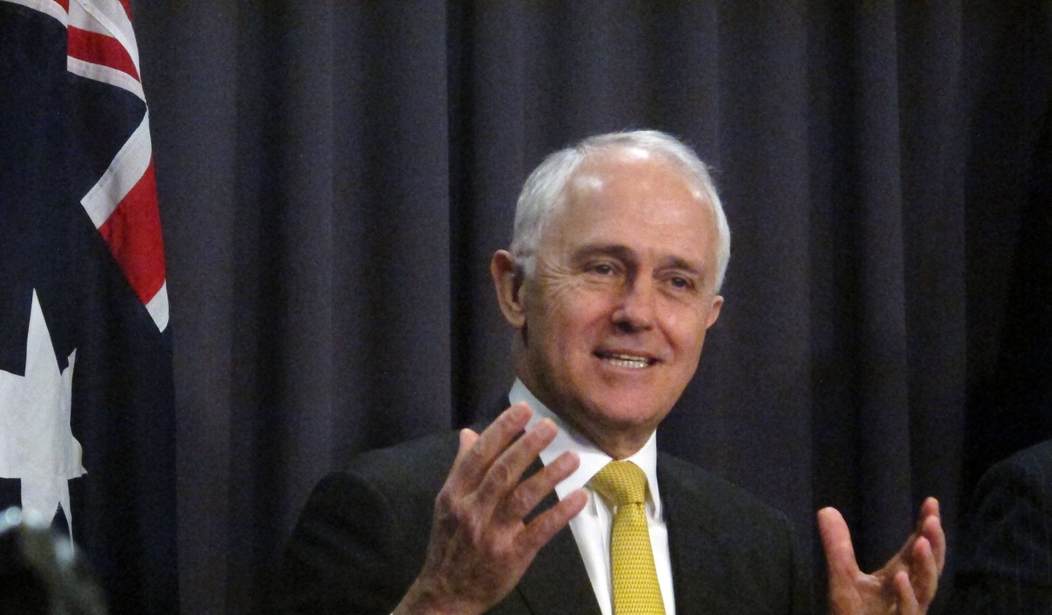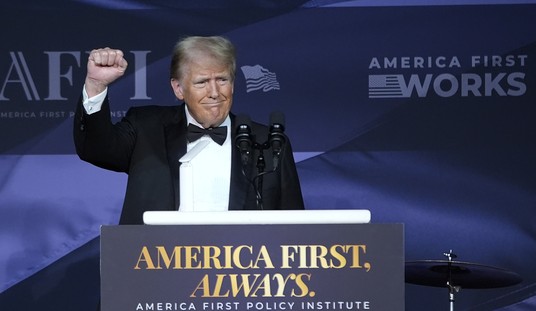Amidst Australia’s nation-wide vote on whether or not to legalize same-sex marriage, the pro-same-sex marriage Prime Minister Malcolm Turnbull has come out in favor of a church’s absolute right to choose whether or not to marry couples. Turnbull defended a church’s religious freedom to refuse to marry a couple after the bride posted her support for same-sex marriage on social media.
“Churches are free to marry whoever they like,” Turnbull said on Friday, Reuters reported. “As strongly as I believe in the right of same-sex couples to marry, religious freedom is fundamental and it will be protected in any bill that emerges from this Parliament.”
Turnbull, who has long supported same-sex marriage, defended the minister of a Presbyterian church in the southern state of Victoria. This minister told a young couple in their twenties that they would not be allowed to hold their ceremony in his church after the bride posted on Facebook her intention to vote for same-sex marriage.
The issue of religious freedom has divided Turnbull’s governing coalition, putting his control of Parliament in jeopardy.
Australia is in the middle of a non-compulsory, non-binding poll to inform Parliament as to whether or not it should become the 25th country to legalize same-sex marriage. The poll runs until the end of October.
While religious freedom is guaranteed in Australia’s constitution, conservatives opposing same-sex marriage have argued that in countries where such unions are legal, religious freedom and parental rights have fallen under fire.
Indeed, in the United States — where the Supreme Court’s ruling in Obergefell v. Hodges legalized same-sex marriage in 2015 — many Christians who gladly serve LGBT people in their normal business have been attacked by the government for refusing to serve same-sex weddings. Notable example include Washington state florist Barronelle Stutzman, Oregon bakers Aaron and Melissa Klein, Michigan farmers Steve and Bridget Tennes, and Colorado baker Jack Philips (whose case will come before the Supreme Court).
In fact, at least one LGBT group in Ohio announced its plans to target churches to force religious organizations to host same-sex weddings, regardless of their faith positions on marriage being between a man and a woman. In discussing cases where religious business owners choose to opt-out of serving same-sex weddings, openly gay megadonor Tim Gill declared, “We’re going to punish the wicked.”
In England, the speaker of the House of Commons recently declared that same-sex marriage won’t be “proper” unless churches cannot opt out from celebrating it. “I still feel we’ll only have proper equal marriage when you can bloody well get married in a church if you want to do so, without having to fight the church for the equality that should be your right,” Commons Speaker John Bercow said.
Opinions among Australia’s LGBTI community also reveal hostility towards religious freedom. In a survey early this year, LGBTI Australians said they would oppose any legal provision allowing churches, ministers, businesses, or civil celebrants to refuse to take part in a gay wedding.
Fifty-nine percent said religious celebrants should not be exempted from having to serve a same-sex wedding. Let that sink in — nearly 60 percent of LGBTI people in Australia say it should be illegal for a pastor or religious minister to refuse to marry a same-sex couple.
Furthermore, 94.3 percent said a church or religious organization should not be allowed to deny use of its property for a same-sex wedding. When the respondents were asked if they would allow this exemption in order to make same-sex marriage legal in Australia, 90.6 percent still opposed it.
This particular case — a church refusing to marry a couple because the bride stated her support for same-sex marriage — may seem extreme, but it illustrates the sort of freedom churches should have when it comes to blessing unions based on their religious beliefs.
Churches should be able to refuse any couple for any reason. If a couple wants to have an “open marriage,” that would violate the biblical idea of an exclusive union of one man and one woman, just as a same-sex wedding would.
Similarly, if a Christian woman happens to want to marry a man, but believes that marriage is not just between a man and a woman (as in this case), the church should have the right to refuse to marry her — because her view of marriage differs from the church’s view.
Perhaps Christians and non-Christans would rest easier about a church’s right to marry — or refuse to marry — any couple it wishes if governments had a clear separation between legal marriage and religious marriage.
Indeed, a state senator in Alabama has sponsored a bill to achieve such a separation. The bill would outlaw marriage licenses, which give an officiant (often a pastor or priest) the sense of blessing a marriage. Instead, a notary would merely record a marriage, and no minister or officiant would be required to sign the document.
“It is my belief that the state cannot make any kind of contract sacred,” this bill’s sponsor, Greg Albritton (R., Baldwin County), told PJ Media. “That’s not its place, that’s not its purpose. It doesn’t have that religious authority to make something sacred, but it can make it binding for the purpose of the parties.”
Christians like Albritton are not trying to make same-sex marriage illegal in countries like the U.S. where it is legal. They are merely trying to separate the issues at hand.
Separating those issues is extremely important, as the issue of transgenderism has opened an entirely new can of worms — in Australia, Britain, and the U.S. — about public schooling and parental rights.
Turnbull’s position is admirable, but it is no guarantee that the LGBT push to restrict religious freedom will not be given free rein should Australia legalize same-sex marriage. Indeed, the current PM might be doing religious freedom a disservice by convincing Australians that it is not an issue at stake in the same-sex marriage referendum.









Join the conversation as a VIP Member